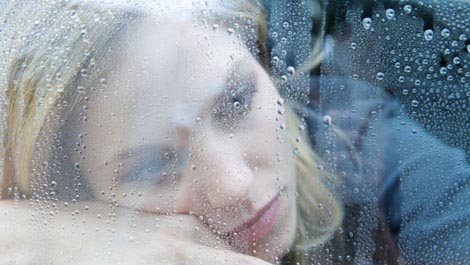

Seasonal affective disorder (SAD), also known as winter depression, winter blues, summer depression, summertime sadness, or seasonal depression, is a mood disorder subset in which people who have normal mental health throughout most of the year experience depressive symptoms in the winter or summer.
In the Diagnostic and Statistical Manual of Mental Disorders DSM-IV and DSM-5, its status was changed. It is no longer classified as a unique mood disorder but is now a specifier called with seasonal pattern for recurrent major depressive disorder that occurs at a specific time of the year and fully remits otherwise. Although experts were initially skeptical, this condition is now recognized as a common disorder. SAD's prevalence in the U.S. ranges from 1.4% in Florida to 9.9% in Alaska.
The U.S. National Library of Medicine notes that "some people experience a serious mood change when the seasons change. They may sleep too much, have little energy, and may also feel depressed. Though symptoms can be severe, they usually clear up." The condition in the summer can include heightened anxiety.
SAD was formally described and named in 1984 by Norman E. Rosenthal and colleagues at the National Institute of Mental Health. There are many treatments for classic (winter-based) seasonal affective disorder. Read more
Light Has The Power to Shift Your Mental Health. Here's How. Science Alert - November 3, 2024
Light shining on the back of the eye sends "timing signals" to the brain and the master clock of the circadian system. This clock coordinates our daily (circadian) rhythms. "Clock genes" also regulate circadian rhythms. These genes control the timing of when many other genes turn on and off during the 24-hour, light-dark cycle. But how is this all linked with our mood and mental health? Circadian rhythms can be disrupted. This can happen if there are problems with how the body clock develops or functions, or if someone is routinely exposed to bright light at night. When circadian disruption happens, it increases the risk of certain mental disorders. These include bipolar disorder and atypical depression (a type of depression when someone is extra sleepy and has problems with their energy and metabolism).
We know the seasons affect your moods - SAD (Seasonal Affective Disorder) - but how about your cognitive skills?
Your Brain May Work Differently in Winter Than Summer Live Science - February 9, 2016
The way your brain works may vary from season to season, a new study suggests. Researchers found that when people in the study did certain cognitive tasks, the ways that the brain utilizes its resources to complete those tasks changed with the seasons. Although people's actual performance on the cognitive tasks did not change with the seasons, "the brain activity for the ongoing process varied. Read the study ...
Seeing the sunnier side of life: Scientists bring a whole new meaning to winter blues Science Daily - August 5, 2015
Scientists at the University of York have shed new light on how humans process color -- revealing that we see things differently in winter compared with summer. The researchers examined how our color perception changes between seasons and in particular how we process the color known as unique yellow. Humans identify four unique hues -- blue, green, yellow and red -- that do not appear to contain mixtures of other colors.